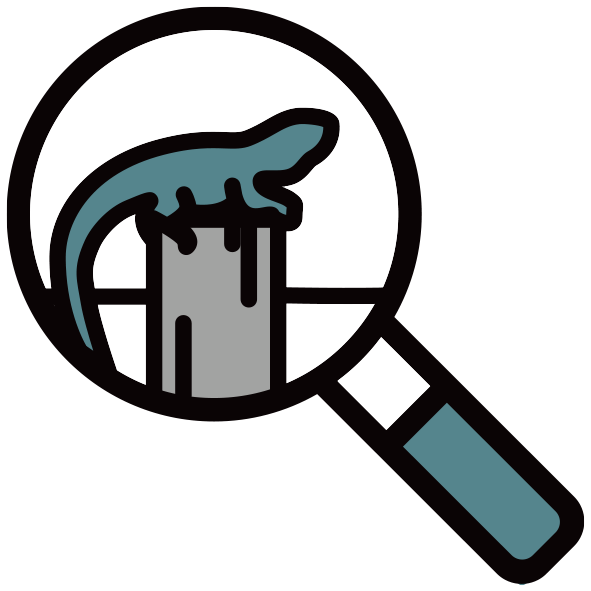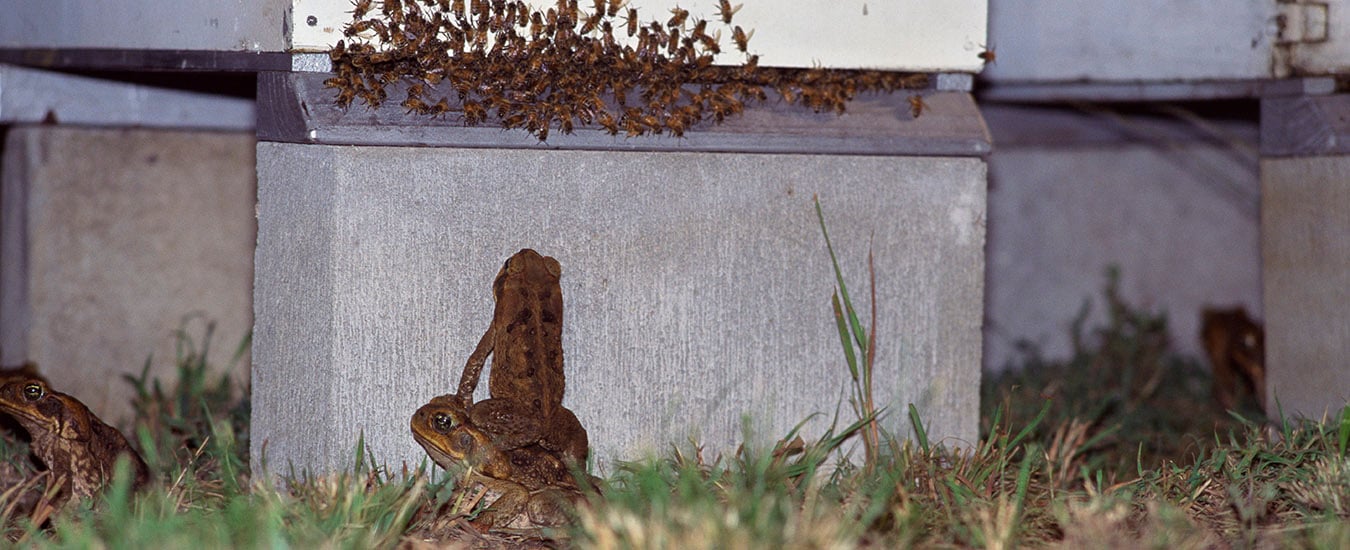Cane toads love to eat bees! In the summer months when cane toads are more active and hives are strong with bees, they like to sit at the entrance of the hives in the night and gobble up bees.
NSW is on the lookout for cane toads, and this is where beekeepers can assist by looking out for them at backyard hives.
The Peri-urban Environmental Biosecurity Network (PEBN) in collaboration with NSW DPI, Local Land Services and recreational beekeeper associations will launch the first cane toad and beehive surveillance project this summer. The project ‘Toad at the Hive’ will be a citizen science observation activity asking you to look around your hives in the evening and keep an eye out for cane toad activity.
Mark Page, NSW DPI Bee Biosecurity Officer Surveillance and member of the Peri-urban Environmental Biosecurity Network Community of Practice, will present a short webinar on this citizen science project at the Tocal Beekeepers Field Day this Saturday 17 October.
The Tocal Beekeepers’ Field Day has been running for 41 years and this year is an entirely virtual event streamed through Facebook and YouTube! Starting from 9 am there will be a full program of informative presentations, Q&A sessions, beekeeping demonstrations and much more. Download the full program and information on how to gain access to the virtual event.
Register your interest for Toad at the Hive
If you’re interested in finding out more or participating in the backyard beekeepers and cane toad surveillance activity ‘Toad at the Hive’ please register your interest. Further information about the event will be provided over the coming weeks as advised by cane toad experts to the best time to undertake this activity.
Also, keep an eye out for updates via our PEBN Facebook page.
Further information:
- Tocal Beekeepers Field Day
- Tocal Beekeepers Field Day Program
- Register your interest to learn about ‘Toad at the Hive’ citizen science project
Acknowledgements:
- Main photo of cane toads attacking bees at the hive (Bufo Marinus), Queensland – Credit © Mark Payne-Gill naturepl.com

